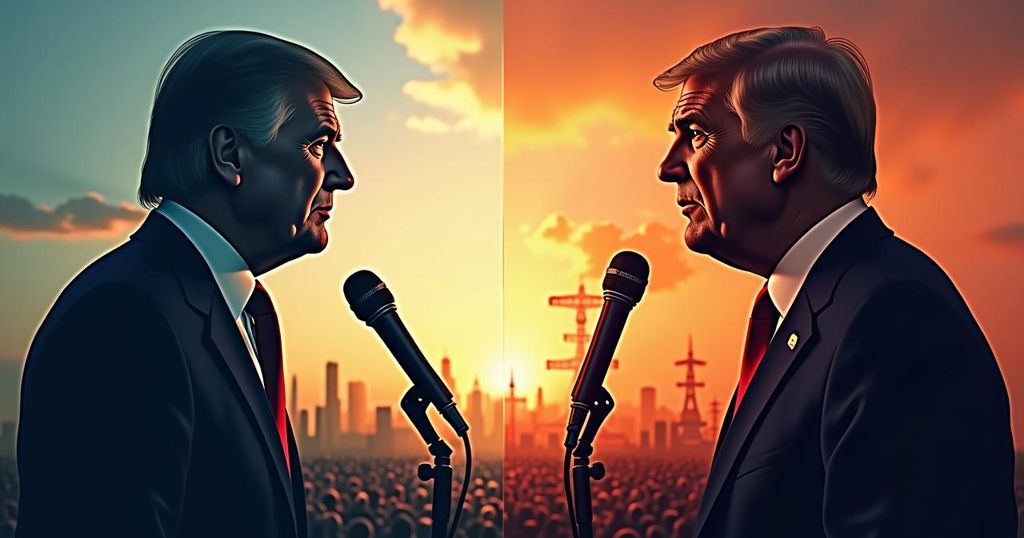Vance and Walz Engage in Vice Presidential Debate Addressing Key Issues
In their first and only vice presidential debate, Senator JD Vance and Governor Tim Walz addressed pressing topics such as the Middle East conflict, climate change, and immigration policies. The debate showcased contrasting viewpoints on international relations and domestic issues, reflecting the candidates’ respective party philosophies as the election draws near.
On October 1, 2023, Republican Senator JD Vance from Ohio and Democratic Governor Tim Walz from Minnesota engaged in their first and sole vice presidential debate. With only five weeks remaining until Election Day, the candidates addressed critical issues including the ongoing conflict in the Middle East, climate change, and immigration policies. The debate commenced with a handshake, signaling a formal yet contentious exchange of differing viewpoints. The moderators opened the debate with inquiries regarding global crises, specifically focusing on the recent missile attacks by Iran on Israel. Governor Walz emphasized the necessity of “steady leadership” during such tumultuous times, criticizing former President Donald Trump for his lack of focus on significant global matters. Senator Vance, on the other hand, defended the previous administration’s approach, asserting that Trump’s strategies had established vital deterrents, stating that the Iranian regime has misappropriated vast sums of money resulting from policy changes implemented by the current administration. He advocated for a foreign policy centered on “peace through strength.” As discussions shifted to climate change, the candidates acknowledged the devastating impact of Hurricane Helene. Vance expressed support for prioritizing domestic resources for disaster management and criticized the opposition for handling manufacturing and emissions. Governor Walz, conversely, pointed out that the current administration has made unprecedented investments aimed at combating climate change, The conversation then transitioned to immigration, wherein Vance articulated the need for a return to stricter border policies, citing the influx of illegal immigration and associated challenges, notably drug trafficking. He called for the revival of Trump-era policies, emphasizing the importance of effective immigration enforcement. This debate was part of a larger electoral contest characterized by its focus on seven pivotal swing states. Walz and Vance had prepared diligently for this event, which was conducted under strict moderation rules with no audience present, ensuring both candidates presented their arguments without external influence. In closing, the candidates were allowed to make concluding statements following a coin toss that determined the order. Vance, having won the toss, opted to deliver his remarks last. The debate was broadcasted widely, reflecting its significance in the impending election.
The debate between Senator JD Vance and Governor Tim Walz comes at a critical juncture just weeks before the upcoming presidential elections. Both candidates represent key demographics in the heart of the Midwest, a region that could be decisive in determining the election outcome. Their discussion highlighted major contemporary issues, including foreign affairs relating to the Middle East, implications of climate change, and the contentious topic of immigration, which remains a focal point in American politics. The differing methodologies and philosophies of the candidates reflect broader national debates, making this confrontation particularly compelling for voters. As vice presidential candidates, their exchanges not only represent their individual arguments but also serve as a reflection of their respective party platforms.
In summary, the vice presidential debate between Senator JD Vance and Governor Tim Walz was marked by significant exchanges on foreign policy, climate initiatives, and immigration strategies. Both candidates articulated their perspectives against the backdrop of current global issues, with Vance emphasizing a return to Trump-era policies while Walz focused on the progressive advancements of the current administration. This debate underscores the importance of these key issues as voters approach Election Day, particularly in historically contested swing states.
Original Source: www.upi.com




Post Comment